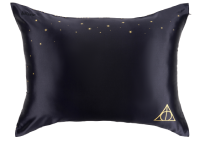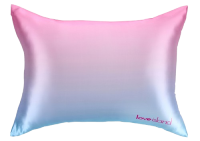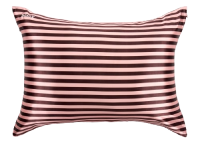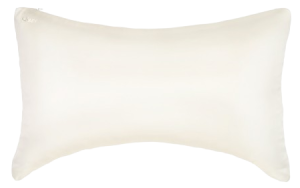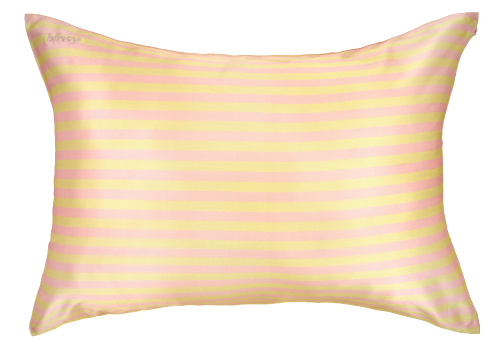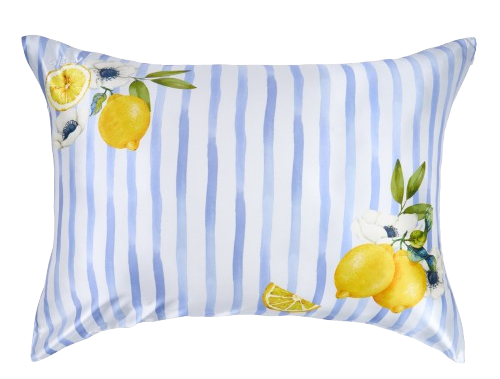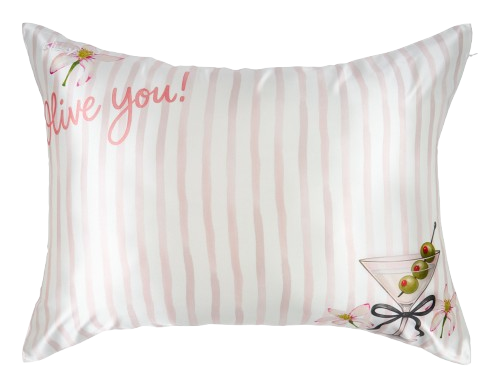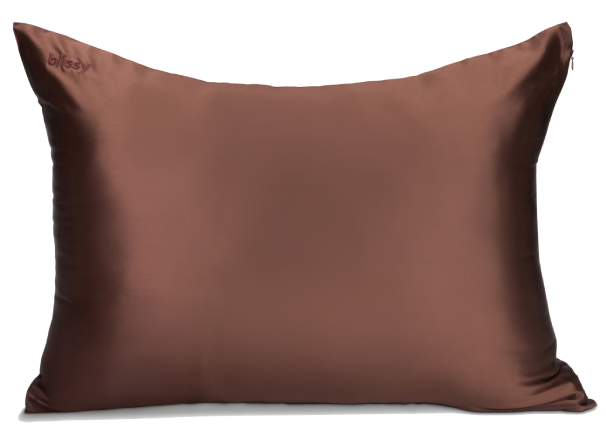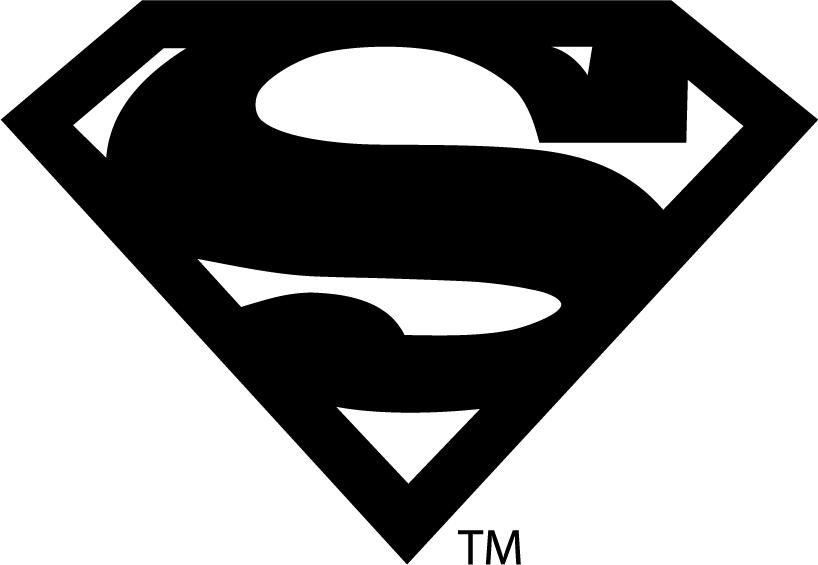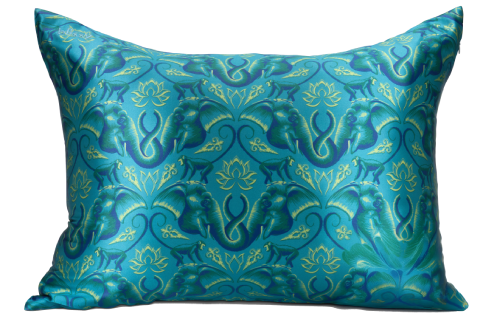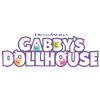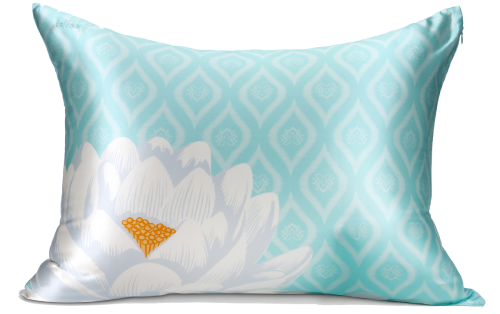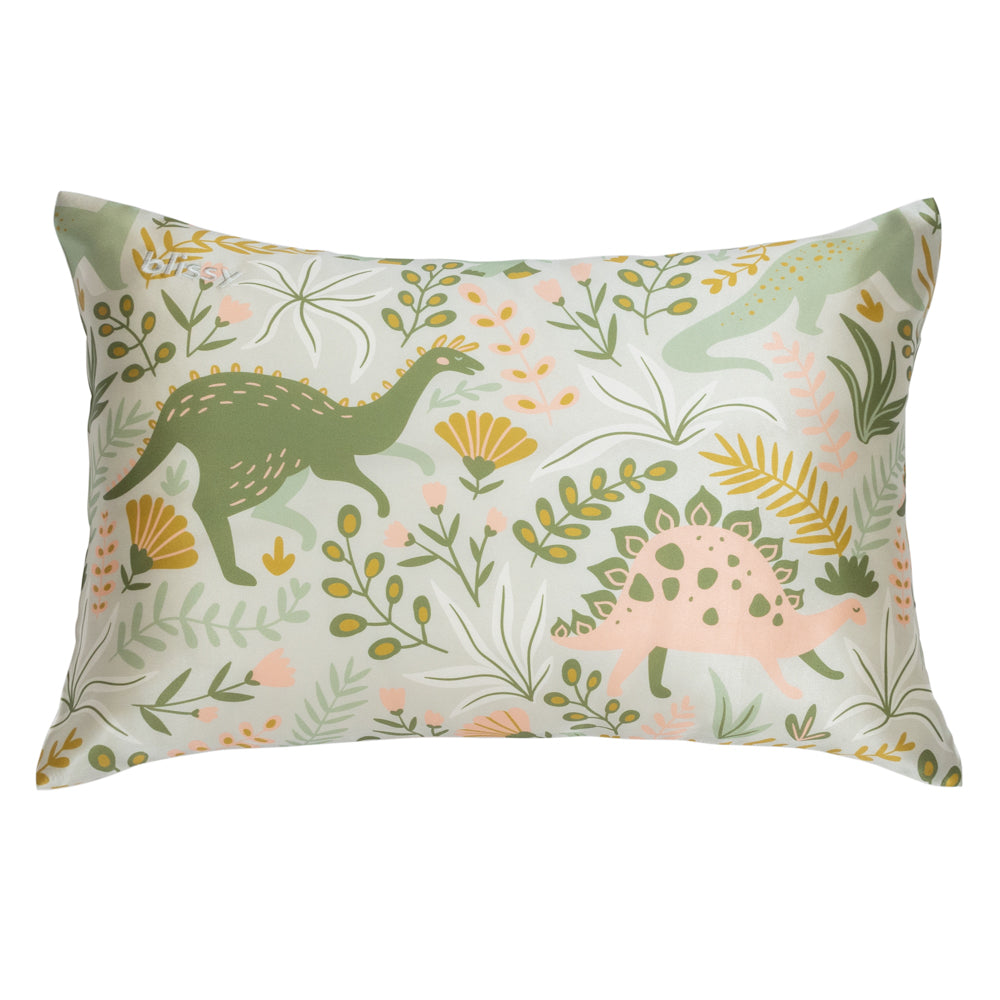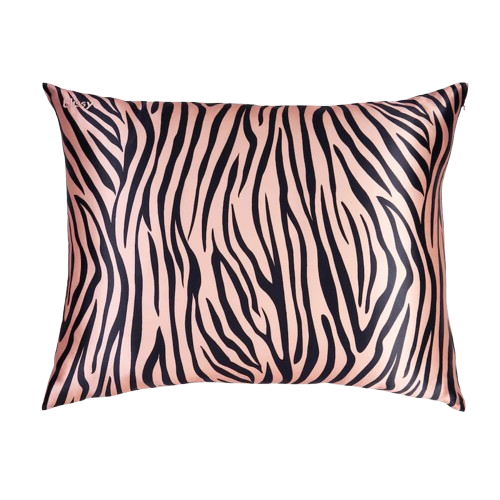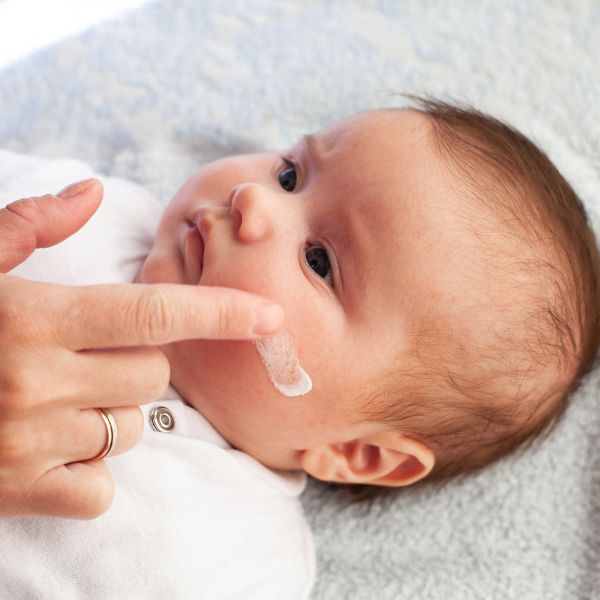Listen to an audio transcription of this post
Baby eczema can make your baby’s skin feel itchy and uncomfortable. While this is a common skin condition in babies, it can be hard to know how to treat it. The key is to avoid using harsh products that could make symptoms worse.
Wondering “how can I treat my baby’s eczema naturally?” Knowing more about eczema, including what causes it, can help you understand how to approach eczema treatments. While you should talk to your baby’s doctor about treatment, the following can give you some ideas to consider.
Just How Common Is Baby Eczema?
According to the Cleveland Clinic, between 15 to 20 percent of babies under 2 years old in the U.S. are estimated to have this common skin condition. If your baby is among that percentage, knowing what to look for is the first step in treating it.
Spotting the Signs of Baby Eczema
How do you know if your baby has eczema? You might start seeing symptoms of it before your baby turns 6 months old. These symptoms might include any of the following:
- Itchy skin
- Dry skin
- Reddish or darker skin discoloration
- Rash with tiny bumps
Where to look for baby eczema symptoms
Baby eczema can develop in different areas of your baby’s body. Your baby might have redness, dryness, rashes, or other symptoms that flare up on their face. Baby eczema can also appear on the scalp, arms, feet, or legs.

Why Your Baby Might Have Eczema
What causes baby eczema to occur? The National Eczema Association states that scientists don’t understand the exact causes of eczema in babies. What’s known is that it’s a mix of environmental and genetic factors.
What does genetics have to do with your baby's eczema? The Cleveland Clinic explains that genetic mutations can sometimes cause babies to lack the proteins needed for a protective barrier on their skin. This makes it easier for certain items to trigger eczema.
What about environmental factors? These are things like certain types of fabric, foods, skincare products, and other items in your home or another environment that can trigger baby eczema symptoms.
Immune system reactions can also cause eczema symptoms to occur. This happens when a baby’s immune system attacks healthy skin cells.
Common triggers of baby's eczema
When someone shares “how I cured my baby’s eczema,” this usually involves figuring out what triggers it. Exposure to certain environmental triggers or other triggers can cause your baby’s skin to become dry, red, and itchy. The trick is determining which items are causing this to happen.
Some common eczema triggers in babies include:
- Allergens, like foods, pet dander, pollen, or dust
- Laundry detergent and other cleaning products with harsh ingredients
- Soaps and other skincare products with harsh ingredients
- Certain fabrics or clothing items
- Dry air
- Certain temperatures
- Sweaty skin
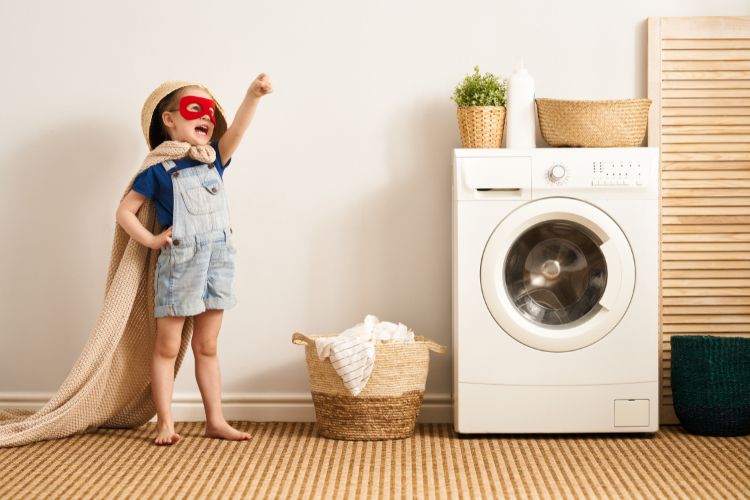
Treat Baby Eczema with the Right Skincare Products and Techniques
While asking yourself “how can I treat my baby’s eczema naturally,” keep skincare in mind. Natural remedies for baby eczema often involve using mild or gentle skincare products that won’t irritate your baby’s skin.
Combining the right skincare products with other natural remedies, such as avoiding triggers, can help your baby start feeling better. The following are some of the more common natural remedies to consider for treating eczema in your baby.
Moisturizers
Slathering on moisturizer after you get out of the shower helps your skin stay moist, but what about your baby’s skin? Moisturizing products have been shown to soothe eczema symptoms. It’s important to use the right kinds of products on your baby’s skin though.
A 2019 study published in Current Opinion in Pediatrics found that bland skin moisturizers lower the risk of atopic dermatitis in babies with a family history of this common skin condition. A 2007 Pediatrics and Child Health recommends using gentle, unscented moisturizers, especially after baths.

Wet wrap therapy
Wet wrap therapy involves moistening dressings in warm water and applying them to the affected skin to help ease eczema symptoms. This type of treatment can be tricky to do. It’s best to ask your baby’s pediatrician about it before trying it.
Sometimes, medicated dressings are used. Medline Plus warns that wet wrap therapy using topical corticosteroids might lead to skin infections. Discussing this with your pediatrician first can help you determine if you want to use this for treating eczema.
Virgin coconut oil
Coconut oil is a widely used natural remedy thanks to its anti-bacterial properties and other beneficial effects. Did you know that you can also use it for baby eczema? You might want to apply coconut oil to your baby’s skin to help reduce eczema symptoms. If so, opt for virgin coconut oil.
A 2013 study published in the International Journal of Dermatology found that virgin coconut oil had better results for treating eczema in babies compared to mineral oil.
Colloidal oatmeal bath
A soothing oatmeal bath might sound great as a natural remedy for relieving itchiness. That’s because oatmeal is known to help ease skin problems, including the itchiness that comes with baby eczema. So, is it safe for babies?
A 2012 study published in the Journal of Drugs in Dermatology found that colloidal oatmeal treatments were well-tolerated in babies and helped ease eczema symptoms. You can add a bit of manuka honey to colloidal oatmeal for your baby's bath to help treat eczema. Just make sure your baby doesn’t eat any of it.

Cod liver oil and fish
Fish has essential fatty acids that can be great for healthy skin. While a young baby won’t be able to eat fish, older ones with eczema may benefit from doing so. A 2008 study published in Epidemiology and Community Health found that fish in the diet helped prevent eczema symptoms in older babies.
What if you have a younger baby with eczema? You might be able to give your baby cod liver oil if your child’s doctor says it’s ok. This oil has nutrients that help relieve eczema symptoms, such as vitamin D.
Calendula cream
Have you ever used calendula cream on your own skin? This cream, which comes from marigolds, is associated with easing eczema symptoms. A 2005 study published in Skin Pharmacology and Physiology found that calendula cream is effective at easing skin irritation.

Say No to Harsh Skincare Products and Their Potential Side Effects
Treating your baby's eczema naturally means staying away from the wrong skincare products. Don’t use soap, shampoo, moisturizer, or any other skincare products that contain harsh ingredients. These could cause baby eczema flare-ups, including dry skin, itchiness, and redness.
Keep in mind that the same goes for laundry detergent since it ends up on your baby’s clothes. Use gentle laundry detergent to wash your baby’s clothing, like Blissy Wash.
Say Yes to Natural, Hypoallergenic Skincare Products
Now that you know which skincare products to avoid, you can focus on choosing ones that ease eczema. Look for hypoallergenic, natural skincare products, such as soaps, to avoid triggering flare-ups.
Since clothing and other items can lead to itchiness and other eczema symptoms, choose these carefully as well. Look for clothing materials and fabrics that won’t irritate your baby’s skin.
Don’t forget your baby’s crib or bed! The linens in there might bother your baby’s skin, depending on the material they’re made of. Choose natural, hypoallergenic fabrics for your baby’s sleep environment, such as a Blissy Junior Silk Pillowcase.

What Makes Blissy Silk Pillowcases the Best for Baby Eczema?
Blissy Junior silk pillowcases are made of all-natural mulberry silk. This material is known for being hypoallergenic, while also providing other benefits for healthy skin. You can treat your baby’s eczema naturally with the help of these high-quality pillowcases.
Retains moisture and prevents friction
When thinking of natural remedies to use for your baby’s atopic dermatitis or eczema, consider silk pillowcases. These pillowcases retain moisture, which helps prevent your baby’s skin from drying out and getting itchy.
Blissy Junior silk pillowcases are also smooth enough to glide across your baby’s skin instead of rubbing against it. This helps prevent friction that could lead to eczema flare-ups.
Durability and hypoallergenic properties
Your eczema treatment approach can include placing a Blissy Silk Pillowcase in your baby’s crib or bed. The hypoallergenic properties of these pillowcases won’t irritate your baby’s skin or lead to eczema symptoms.
Blissy Junior silk pillowcases are also highly durable. Their tight weave doesn’t allow dust and other allergens to build upon them. This can help lower your baby’s exposure to common triggers of baby eczema.

Consult a Healthcare Professional First!
Before you use any natural remedies or treatments for your baby's eczema, talk to your pediatrician first. Consulting a healthcare professional is important to make sure that anything you plan on using is perfectly safe for your little one.
Checking with your child’s doctor is even more important if your baby has other health issues or concerns. Your pediatrician can give you the green light on treating your baby’s eczema naturally.
Remember that Baby Eczema Isn’t Forever
On a final note, keep in mind that your baby’s eczema might only last for a short time overall. The Mayo Clinic states that most children outgrow these kinds of skin conditions when they’re between 3 and 5 years old.
Check Out Blissy Products for Your Baby
Find the cutest Blissy Junior Silk Pillowcases to help your baby feel better. Our silk pillowcases are available in adorable designs that are perfect for your baby’s nursery, including dinosaurs, hedgehogs, unicorns, sharks, and more. We also have solid-colored silk pillowcases for babies in soothing hues.




